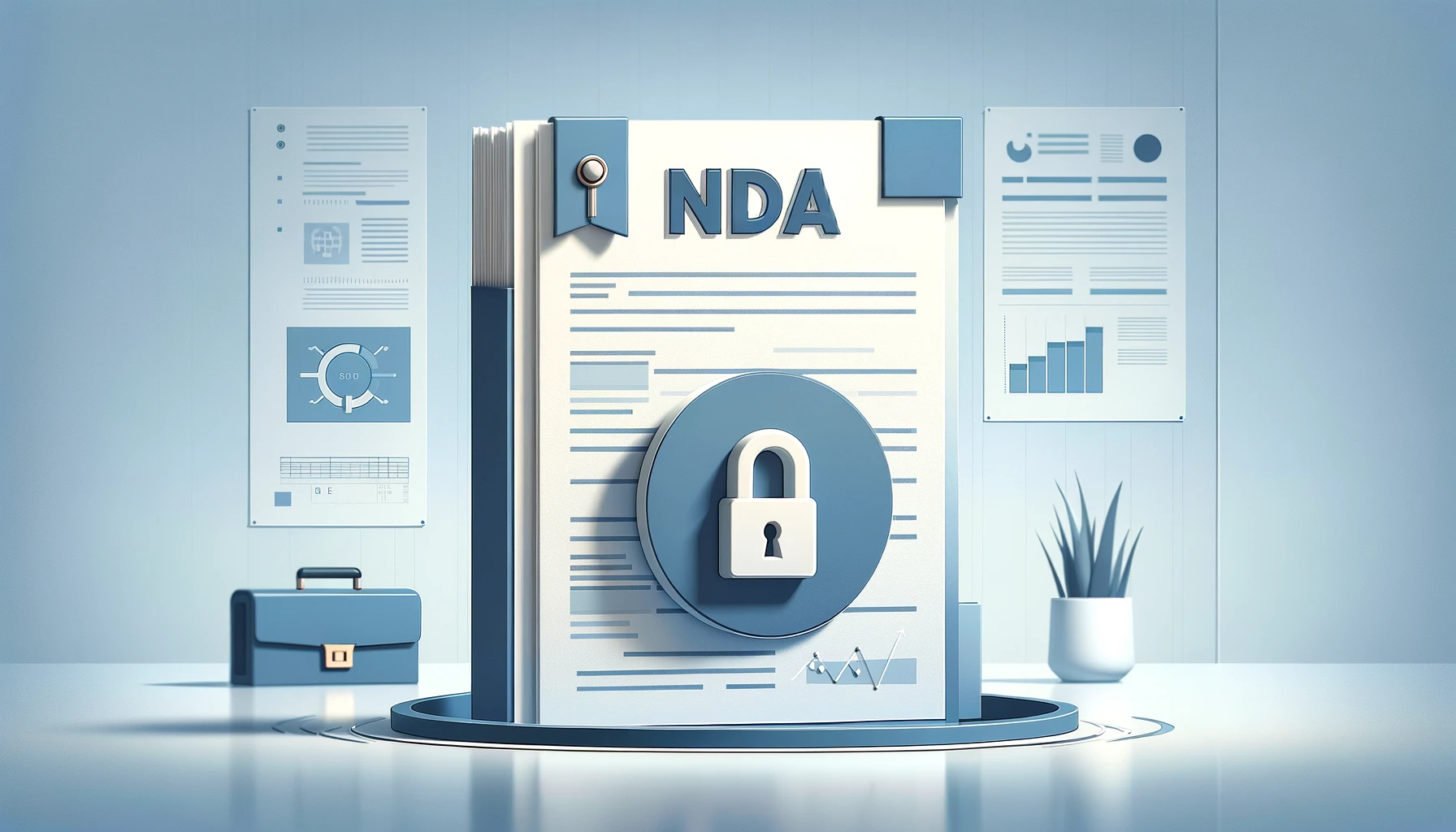Whether you’re a startup, a growing business, or a well-established company, ensuring that your information remains confidential is crucial. One of the most effective ways to achieve this is through a non-disclosure agreement (NDA).
Scroll down to the end of this article for a free downloadable NDA template.
What is a non-disclosure agreement?
A non-disclosure agreement, also known as a confidentiality agreement, is a legally binding contract between two or more parties that outlines how confidential information will be shared and protected. The primary purpose of an NDA is to prevent sensitive information from being disclosed to unauthorised parties.
Key elements of a non-disclosure agreement
Definition of confidential information: Clearly outlines what constitutes confidential information. This can include business strategies, financial data, intellectual property, customer lists, and other exclusive information.
Obligations of the receiving party: Specifies the responsibilities of the party receiving the confidential information. This typically includes a commitment to protect the information and not disclose it to third parties.
Exclusions from confidentiality: Details any information that is not covered by the NDA, such as information that is already public knowledge.
Duration of confidentiality: Establishes the time period during which the information must be kept confidential.
Consequences of breach: Outlines the legal repercussions for violating the terms of the NDA, which can include injunctions and monetary damages.
Benefits of non-disclosure agreements
Protecting intellectual property: When sharing ideas, inventions, or trade secrets with potential partners, investors, or employees, an NDA ensures that your intellectual property is not misused or disclosed without your consent.
Maintaining competitive advantage: Confidential information, such as business plans, marketing strategies, and customer data, is often key to maintaining a competitive edge. An NDA helps prevent competitors from gaining access to this valuable information.
Facilitating open communication: In many business relationships, open communication is essential for collaboration and growth. An NDA creates a safe environment for sharing sensitive information.
Legal recourse: If confidential information is disclosed without authorisation, an NDA provides a clear legal framework for pursuing remedies.
When to use a non-disclosure agreement
Business partnerships and joint ventures: When entering into partnerships or joint ventures, NDAs protect the interests of all parties involved by ensuring that shared information remains confidential.
Investor meetings: Startups and businesses often share sensitive information with potential investors. An NDA ensures that this information is used solely for evaluating the investment opportunity.
Employee and contractor agreements: NDAs are commonly used in employment contracts to protect company secrets and sensitive information.
Mergers and acquisitions: During mergers and acquisitions, extensive information is shared between the involved parties. NDAs protect this information throughout the negotiation process.
How long do non-disclosure agreements last?
The duration of non-disclosure agreements varies based on the specific terms outlined in the agreement. Typically, NDAs remain in effect for a defined period, such as one to five years, but some may be everlasting. The duration should be clearly specified to ensure both parties understand their obligations.
Download your free non-disclosure agreement template
For those seeking a reliable and professionally crafted NDA, Rubric Law offers a free downloadable template tailored to meet your business needs.
This template provides the security and peace of mind necessary to protect your sensitive information.
Use our free bespoke NDA builder here.


